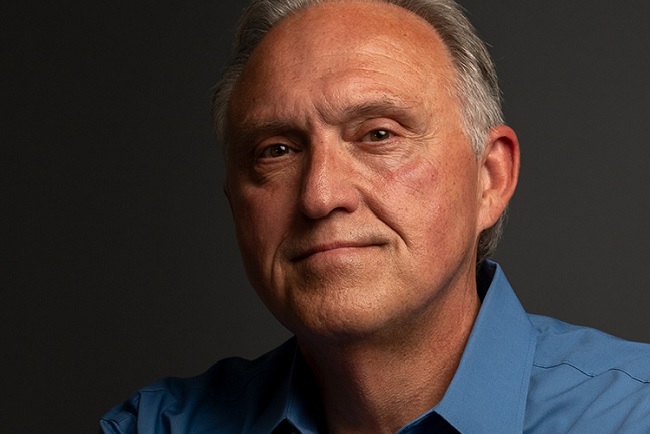A Team Effort Keeps Watch Over Patient for 23 Years
For years, Charles Chitwood has relied on the team at VCU Health Pauley Heart Center to keep an eye on a number of heart problems.
One day in 1998, he thought he was dealing with a bad case of heartburn. But his wife insisted he go to the hospital, where it turned out he was having a mild heart attack. He was diagnosed with coronary artery disease and required a procedure at that time to clear blocked arteries.
Every heart is unique. And that’s how we treat them. Learn more about our expertise with coronary artery disease and heart attacks.
Dr. Mathew Joseph put two stents in Chitwood’s heart that day. Fast forward to today, and the retired probation officer still entrusts his heart’s care to Dr. Joseph, a Pauley cardiologist (who, it so happens, also treated Chitwood's mother).
"Dr. Joseph has always been a very pleasant, calming influence," Chitwood says. "He’s been a rock for me: With him, I know I’m going to receive the best possible care."
More than a heart attack
Since that initial visit, Dr. Joseph has also treated Chitwood for atrial fibrillation (AFib), which bothered him intermittently over the years. AFib causes irregular beating in the upper chambers of the heart, leading blood to pool and clot. Without treatment, AFib can lead to a stroke.
Learn more about our expertise with AFib.
Ablation’s the answer. And a tiny device.
Chitwood took blood thinners to bring his heart to a normal rhythm, but the issue persisted for years. Joseph suggested he undergo ablation — a procedure where freezing, heating or radiofrequency waves are used to block the heart tissue from producing and spreading atrial fibrillation.
In 2016, Chitwood paid a visit to Dr. Kenneth Ellenbogen, Pauley Heart Center’s Cardiology Chair, to discuss undergoing ablation. "Dr. Ellenbogen is the guy you want holding onto your heart if you’ve got something bad going on with it," Chitwood says.
After the procedure, a WATCHMAN device was placed in Chitwood’s heart. The permanent device — a replacement for blood thinners — is used to stop clots in the atrial appendage from entering the blood stream. Chitwood’s AFib improved, but other problems persisted.
Unique imaging reveals a dangerous condition
During a visit early last year with Dr. Deepak Thomas, one of Dr. Joseph’s colleagues at VCU Heath Colonial Square in Colonial Heights, Chitwood reported sensations that felt like “someone pressing a finger against my chest.” Dr. Thomas ordered a nuclear imaging test to view blood flow to the heart, and the results showed blockages in two arteries.
Nuclear imaging allows specialists to see inside the body and study tissue function and blood circulation and identify disease in earlier, more treatable stages — often before conventional imaging and other tests reveal abnormalities. "These newer imaging tools aid us in making more accurate diagnoses," Dr. Joseph says.
Learn more about our nuclear imaging.
Chitwood's blocked arteries were cleared in a minimally invasive procedure. He’s grateful his care team discovered a problem that could have taken his life, and marvels at the fact such imaging technology is available.
"I had a heart attack nearly 23 years ago, and I’m still here. I have a good life. I’m active," Chitwood says. "The entire team at VCU Health Pauley Heart Center has been fantastic."


